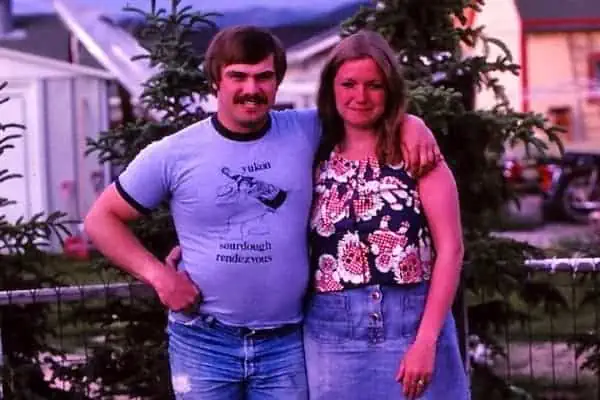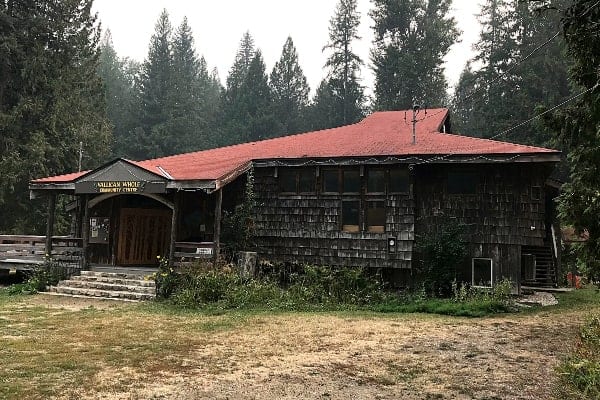Whoooo the heck is Cedric, anyway? We’ll come back to that later.
About a year after Beth Hawkes moved to Salt Spring Island with her husband, she saw a small ad in the Gulf Islands Driftwood about a literary competition for unpublished B.C. writers over the age of 50.
“I just looked at the ad, and in my stomach I said, ‘I could do that’. I didn’t weigh it this way and that, or hesitate,” Hawkes says.
“I put the deadline in my calendar and started to kind of muse on it and pull a document draft together.”
Last May, Hawkes submitted a story about yearly seasons and life seasons to the second edition of the Cedric Literary Awards.
“I sent it in almost on the wire, and then I let it go, like throwing a little boat out onto the water.”
In September, the executive director of the non-profit society behind the awards, Veronica Osborn, called to say her story, Seasons, had made the short list in the creative non-fiction category, and to invite her to the award ceremony.
“To be perfectly honest, I was so pleased to be shortlisted and be part of the party, that was enough to celebrate. When I was announced as the winner, I truly was gobsmacked,” Hawkes says.
“It turned out to be quite an exciting moment for me. More than anything else, I think it inspired me to continue to write in as an honest and grounded way as I could, and then maybe just keep throwing my bread upon the waters.”
The Cedrics were launched in 2014, the brainchild of Victoria entrepreneur Peter Dale, who is also behind the award’s sponsor, Betterthan50.com, a web-based information resource for the 50-plus demographic based in the B.C. capital.
Osborn says both the website and the literary awards reflect the belief of Dale and his partners that this age group is an “under-represented, unrecognized segment” of society.
“I think his idea was a sound one. It was one that was born out of just encouraging this particular segment of our population in a way that would be meaningful to them,” she says.
The competition accepts raw or edited manuscripts in three categories: fiction, creative non-fiction, and poetry, written in either English or French. There is also a separate award for First Nations writers in any of those genres, with a $3,000 top prize in each category.
In its first two years, it was open only to B.C. writers. This year, it has been broadened to include unpublished writers from Alberta, Saskatchewan and the Yukon. Osborn says the goal is to go nation-wide by the year 2020.
Hawkes says she has always been drawn to literature, and has a degree in linguistics. While she had done some writing as part of her job, most of it was of a journalistic nature.
“I didn’t go public in any way with what I call my personal creative writing. That was always on a private side of my desk. It wasn’t really until retirement that I sort of felt the pull to write for my own self-knowledge and awareness,” she says.
“I think in many ways you need to find a way to slow down and be quiet and disconnect yourself from your working role. It takes some time to resettle into yourself and really communicate honestly from your own life.”
An avid reader of both fiction and non-fiction, Hawkes says the more she works in the realm of creative non-fiction, the more interested she becomes.
“It seems to be one of the genres of our time. I think people are really being drawn to think more about truth and fiction, and where they meet, and what our personal stories have to offer and inspire us.”
As people age and let go of career and child-rearing responsibilities, Hakes suggests, they have less to prove to others or themselves.
“It’s more a process of dismantling our egos than building them up. So, there’s something very freeing and invigorating about losing fear of self-expression at this time,” she says.
“Something they were brilliant to do in creating the awards was to say, ‘Here’s a pathway to putting your voice out – a voice that has experience and has taken part a lot in the world.’
Which leads us back to Cedric.
When Dale recruited Osborn to organize a new literacy award program, he provided her with the logo of an owl, which traditionally represents wisdom, tenacity, and knowingness.
“The name Cedric just came straight out of Peter’s head. We like to think that he can become a recognized symbol,” she says.
Deadline for entry to the 2017 Cedric Literary Awards is midnight, May 1. For competition details, and to see Hawkes’ winning entry, go to http://www.thecedrics.ca/




